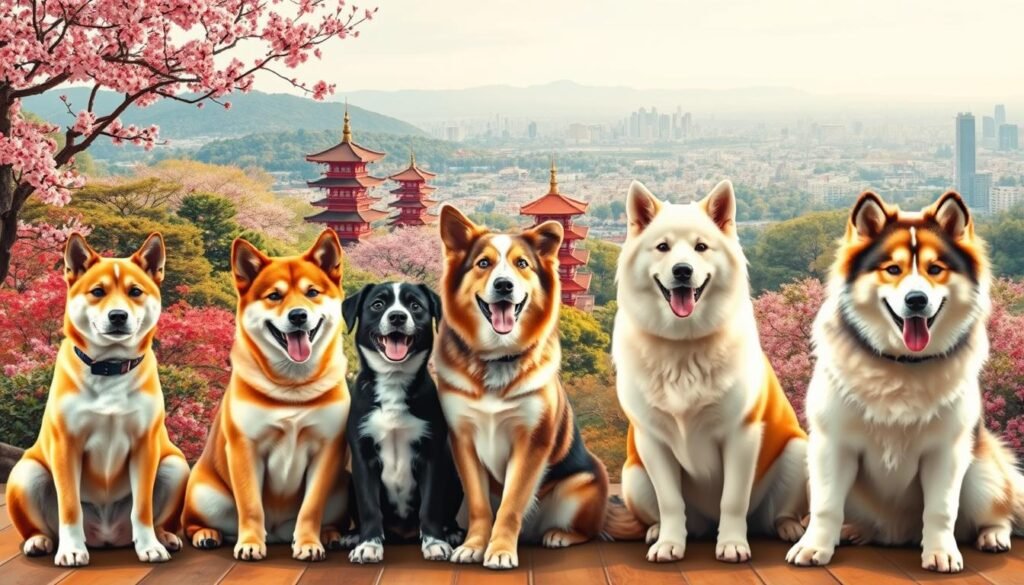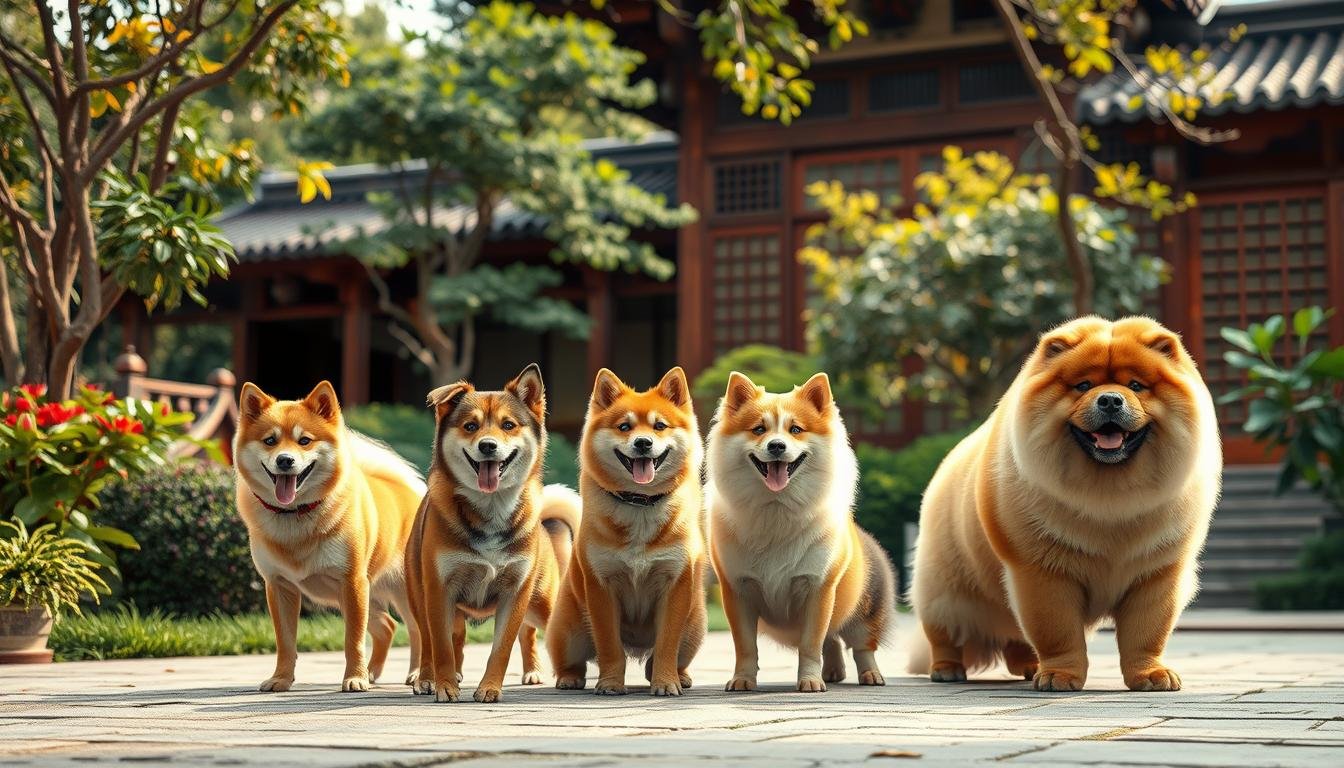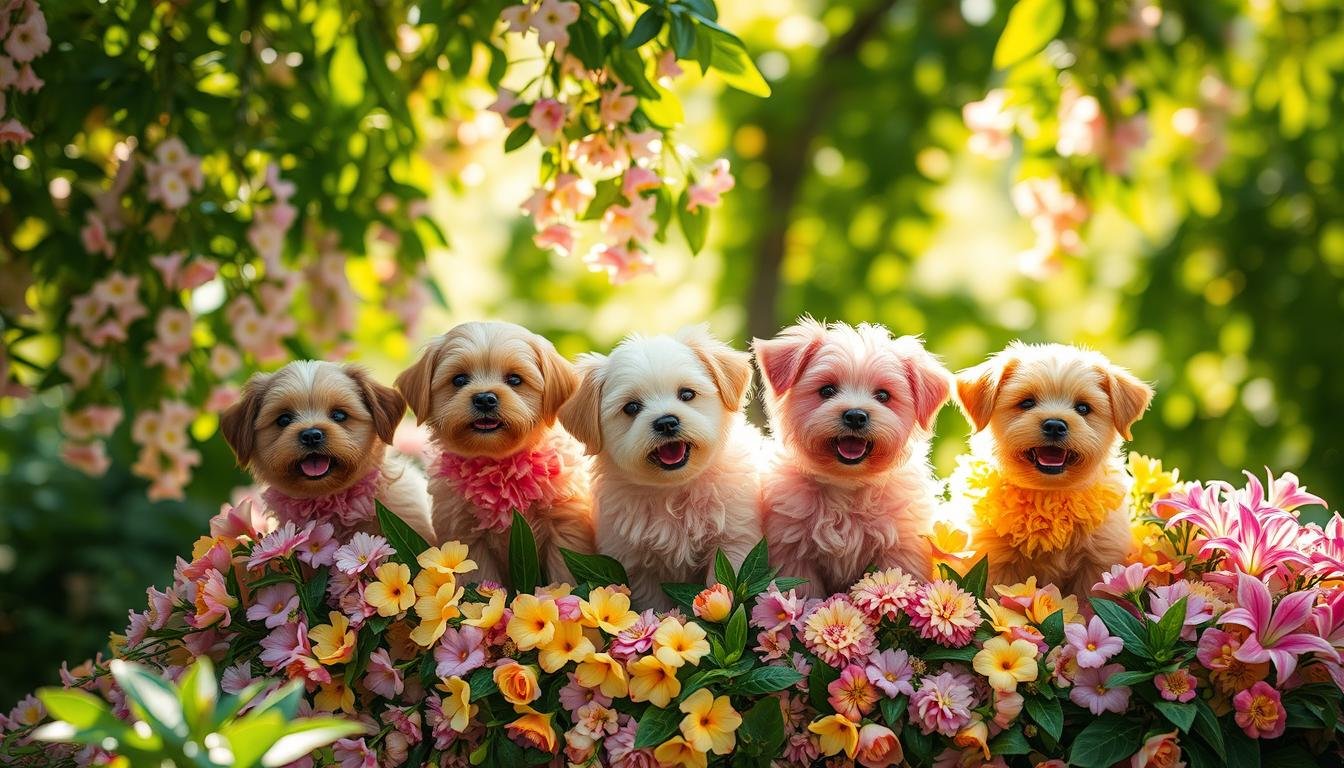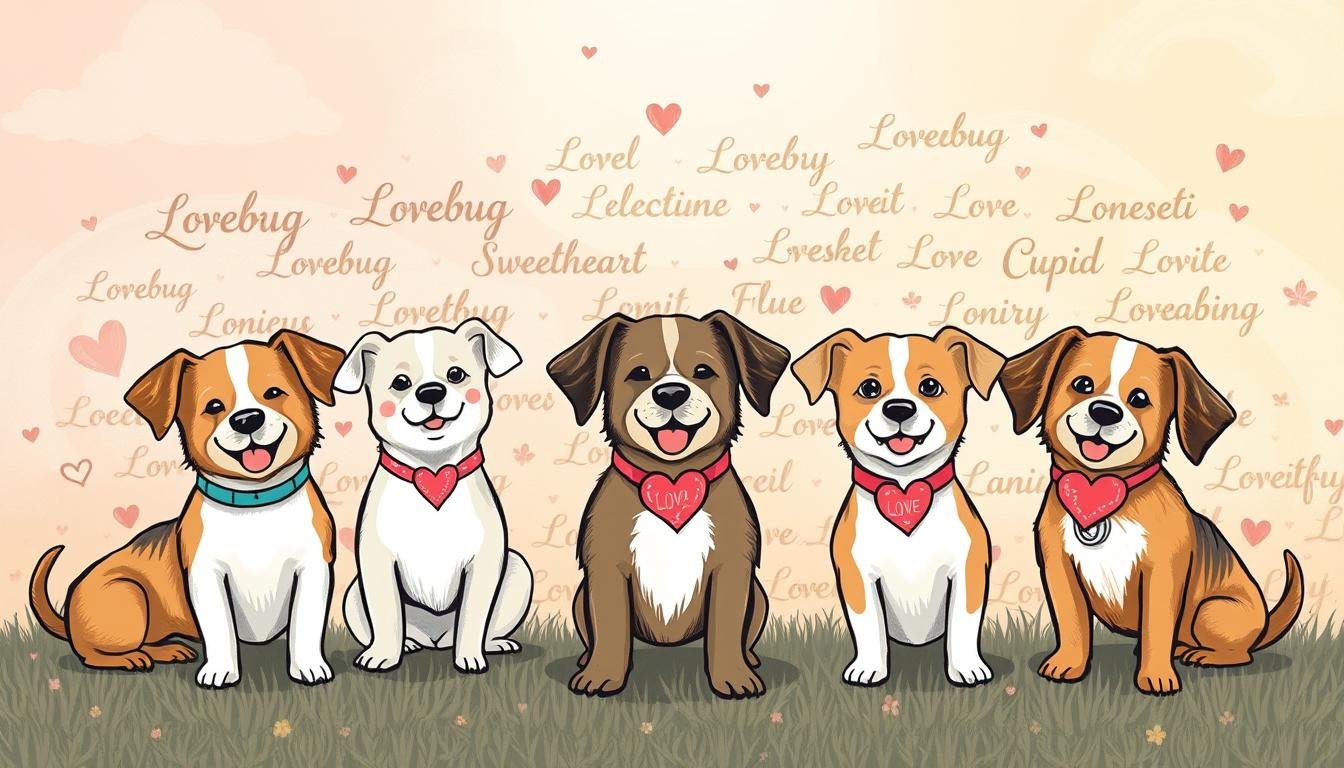Are you looking for a dog name that stands out and reflects a rich cultural heritage? Oriental names, especially those inspired by Japanese culture, have become increasingly popular among dog owners seeking something truly unique. These names not only sound beautiful but also carry deep meanings, making them a great choice for your furry friend.
Japanese culture offers a wide variety of names that are both meaningful and easy to pronounce. Names like Sakura (cherry blossom) and Kenzo (strong and healthy) are perfect examples. They not only reflect the beauty of nature but also honor the traditions of Japanese heritage. Whether you prefer classic names or something more modern, there’s an Oriental name that’s just right for your dog.
Choosing a name for your dog is more than just a trend; it’s a way to connect with a cultural tradition that values nature, simplicity, and elegance. In this article, we’ll explore a list of Oriental names that celebrate this unique heritage, helping you find the perfect name for your loyal companion.
Key Takeaways
- Oriental names offer a unique and meaningful way to name your dog.
- Japanese-inspired names like Sakura and Kenzo are both beautiful and easy to pronounce.
- These names often reflect nature, heritage, and cultural traditions.
- Choosing an Oriental name is a great way to honor cultural heritage and stand out.
- This article provides a curated list of Oriental names perfect for your dog.
Introduction to Oriental Dog Names
Oriental dog names are a fascinating choice for pet owners looking to add a touch of cultural elegance to their furry friend’s identity. These names, deeply rooted in Japanese and broader Asian traditions, offer a unique charm that sets your dog apart. Whether you’re drawn to the simplicity of nature-inspired names or the richness of heritage-based ones, there’s an Oriental name that perfectly suits your pet.
Setting the Stage: Why Oriental Names?
The growing trend of using Oriental names for pets reflects a cultural pride and appreciation for meaningful nomenclature. Inspired by elements like food, seasons, and historical figures, these names carry stories and symbolism that enrich your dog’s identity. For instance, names like Sakura (cherry blossom) or Koi (a type of fish) not only sound beautiful but also hold deep cultural significance.
What to Expect from This Listicle
In this article, we’ll take you on an engaging journey through a curated list of Oriental names, each blending art, culture, and tradition. You’ll discover:
- Popular Japanese names with their meanings
- Inspirations from nature and cuisine
- Names that reflect your dog’s unique traits
- Practical tips for choosing the perfect name
Whether your furry friend is male or female, you’ll find a name that honors their heritage and personality. Let’s dive in and explore these beautiful Oriental names together!
For more inspiration, check out our collection of Korean pet names that celebrate cultural richness and uniqueness.
Cultural Significance of Japanese Dog Names
JAPANESE dog names are more than just a label; they’re a window into a rich cultural tapestry. Rooted in centuries of tradition, these names carry meanings that reflect Japan’s deep connection to nature, heritage, and social values.
Heritage and Traditional Values
Centuries of tradition have shaped Japanese dog naming conventions. The Nihon Ken Hozonkai, a society dedicated to preserving Japan’s native dog breeds, emphasizes the importance of names that reflect cultural heritage. Names like Pochi and Maru are simple yet meaningful, embodying the spirit of Japanese simplicity and elegance.
| Name | Meaning | Cultural Significance |
|---|---|---|
| Pochi | Means “pooch” in Japanese | A common, affectionate name for dogs |
| Maru | Means “circle” or “perfection” | Symbolizes completeness and harmony |
Modern Influences and Trends
Today, Japanese dog names blend tradition with modern influences. While heritage remains important, contemporary trends now incorporate elements like food, pop culture, and even international inspirations. This dual influence creates a unique naming style that honors the past while embracing the present.
“Choosing a Japanese name for your dog is like giving them a piece of history and a touch of modern flair. It’s a way to connect with a culture that values both tradition and innovation.” — Unknown
Each Japanese dog name carries a meaning deeply rooted in the country’s natural beauty and social values. Whether you’re drawn to traditional names or modern trends, understanding these cultural nuances can help you choose a name with real significance. This thoughtful approach ensures your dog’s name is not just beautiful but also meaningful.
Oriental Names for Dogs
Discover the charm of Japanese dog names, each carrying a unique meaning and cultural significance. These names are perfect for pet owners seeking a blend of tradition and modern appeal.
Popular Japanese Dog Names and Meanings
Let’s explore some beloved Japanese dog names and their meanings:
- Adzuki – Inspired by the sweet red bean, symbolizing joy and energy.
- Kenzo – Means “wise one,” ideal for intelligent and discerning pets.
- Pochi – A playful name meaning “pooch,” perfect for friendly dogs.
- Sakura – Represents the cherry blossom, embodying beauty and fleeting grace.
Incorporating Famous Breeds like Shiba Inu
Names like Adzuki and Kenzo resonate well with breeds such as the Shiba Inu, known for their bold and curious nature. These names not only reflect the dog’s personality but also honor Japanese heritage, making them a thoughtful choice for your pet.
These names are simple, elegant, and rich in meaning, making them ideal for modern dog owners who appreciate cultural depth and ease of use.
Unique Meanings Behind Dog Names
Discover how Japanese dog names draw inspiration from nature and cultural symbols, carrying deep meanings that make them special. These names often reflect the beauty of the natural world and the desire for good fortune.
Names Inspired by Nature and the Seasons
Natural elements like flowers and the sun have a significant influence on dog names. For instance, Sakura symbolizes the cherry blossom, representing fleeting beauty and new beginnings. Similarly, Taiyo means “sun,” embodying warmth and energy. These names not only capture the essence of nature but also resonate with the seasons, making them meaningful choices for your pet.
Symbolisms of Good Luck and Prosperity
Many Japanese names carry symbols of good luck and prosperity. Yuki, meaning “snow,” is often chosen for its association with purity and good fortune. Hana, meaning “flower,” symbolizes blossoming beauty and love. These names are more than just labels; they convey wishes for a happy and prosperous life for your dog.
- Natural elements like flowers and the sun inspire meaningful dog names.
- Symbols of good luck, such as snow and blossoms, are popular choices.
- Names like Sakura and Yuki tell stories of nature and cultural heritage.
Choosing a name inspired by nature and cultural symbols adds a special touch to your dog’s identity, reflecting both their personality and your unique style.
Dog Names Inspired by Asian Food
Asian cuisine offers a wealth of inspiration for dog names that are both delicious and meaningful. Drawing from popular dishes, these names reflect a love for food and culture, adding a unique twist to your pet’s identity.
Japanese Culinary-Inspired Names
Japanese food names are both playful and culturally rich. Sushi, a iconic dish, makes a sophisticated name, while Mochi, a traditional rice cake, evokes softness and sweetness. Ramen and Tempura are also popular choices, bringing warmth and energy to your dog’s name.
- Sushi – A classic choice symbolizing elegance.
- Mochi – Perfect for a soft and cuddly dog.
- Ramen – Ideal for a dog with a hearty personality.
Chinese and Korean Food Motivations
Chinese and Korean cuisines also inspire delightful names. Bao, meaning dumpling, and Dumpling itself are charming options. Kimchi, a Korean staple, adds a bold and lively touch, while Bao reflects a love for Chinese delicacies.
- Bao – A cute and quirky name for a sweet dog.
- Kimchi – Ideal for a lively and spirited pet.
These names are not only cute but also celebrate the flavors of Asia, making them a thoughtful choice for your pet. Whether you prefer Japanese, Chinese, or Korean inspirations, there’s a food name that suits your dog’s personality perfectly.
Creative and Celebrity-Inspired Dog Names

Looking for a dog name that’s as unique as your furry friend? Pop culture and K-pop offer a wealth of inspiration. Names like Taeyeon and G-Dragon bring a modern, celebrity twist to your dog’s identity, making them stand out while reflecting your love for music and trends.
Names Influenced by Pop Culture and K-pop
K-pop fans can draw from their favorite idols for name ideas. Taeyeon, a beloved K-pop star, makes a charming name for a friendly dog. Similarly, G-Dragon adds an edgy vibe, perfect for a bold pet. These names not only honor your cultural interests but also give your dog a stylish identity.
- Explore names like Sushi and Mochi for a food-inspired, trendy touch.
- Choose Ringo or Luna for a playful, pop culture reference.
- Opt for BTS-inspired names like Jin or V for a dedicated fan’s pet.
| Name | Meaning | Pop Culture Inspiration |
|---|---|---|
| Taeyeon | Means “greatness” in Korean | Popular K-pop idol from Girls’ Generation |
| G-Dragon | Symbolizes power and creativity | Leader of BIGBANG, a K-pop group |
| Sushi | Japanese dish | Popular food-inspired name |
| Mochi | Japanese rice cake | Soft and sweet, ideal for a cuddly dog |
These creative names let you celebrate your interests while giving your dog a unique identity. Whether inspired by K-pop idols or trendy food, the right name will make your furry friend truly special. Have fun exploring these options and finding the perfect fit for your companion!
Names Based on Breed Characteristics and Appearance
Your dog’s unique look and lineage can inspire the perfect name. Consider their physical traits and heritage to find a name that truly suits them.
Highlighting Unique Physical Traits
Breed-specific characteristics often guide naming choices. For instance, a Shiba Inu’s fox-like appearance might inspire names like Kitsune, symbolizing cleverness. Similarly, a dog with a fluffy coat could be named Yuki, meaning “snow,” reflecting their white fur.
Heritage-Based Naming for Different Breeds
Heritage can also shape your naming decision. Japanese breeds like the Shiba Inu often have names tied to good luck. For example, Nana means “seven,” a lucky number in Japan, while Yoshi signifies “good luck.” These names not only honor your dog’s lineage but also bring cultural significance.
By linking your dog’s name to their breed and appearance, you create a meaningful connection. This approach ensures their name is both personal and culturally rich, making it a thoughtful choice for your pet.
International Dog Naming Traditions

Exploring the diverse world of dog naming traditions across Asia reveals a fascinating tapestry of cultural influences. From Korea to Vietnam and Thailand, each country brings its unique linguistic and historical perspectives to the table. This section delves into how language and culture shape the naming conventions of dogs in these regions, offering a global perspective on dog naming.
Exploring Names in Korean, Vietnamese, and Thai
Korean dog names often draw from natural elements and virtues. For instance, “Bomi” means “spring” and symbolizes new beginnings. In Vietnam, names like “Chó” (meaning “dog”) reflect simplicity and endearment. Thai names frequently incorporate elements of nature and good fortune, such as “Fah,” meaning “sky,” symbolizing limitless possibilities.
- Language influences pronunciation and memorability of names.
- Examples like “Bomi” and “Fah” show nature-inspired themes.
- Historical nuances shape naming conventions in each culture.
These international naming practices not only celebrate global diversity but also highlight the beauty of cross-cultural exchange. By exploring names from Korea, Vietnam, and Thailand, you can find a name that reflects both your dog’s personality and your appreciation for global traditions.
Tips for Choosing the Perfect Oriental Dog Name
Choosing the right name for your dog can be a fun yet challenging task. To make it easier, here are some expert tips to help you select a name that’s both meaningful and practical.
Keep It Simple and Memorable
Opt for short, simple names that are easy to pronounce and remember. Names like Mochi or Yuki are ideal because they’re concise and have clear meanings. Shorter names are also more effective during training and in public settings.
- Short names are easier for dogs to recognize and respond to.
- Names with one or two syllables work best for daily use and training.
Consider How the Name Sounds
The sound of a name can greatly impact how well your dog responds. Choose names with distinct sounds and avoid those that might be confused with commands. For example, Ringo has a clear, recognizable sound that stands out.
- Names ending in vowels can capture your dog’s attention more effectively.
- Hard consonants make names easier to distinguish from other noises.
A well-chosen name not only reflects your dog’s personality but also adds a touch of uniqueness. By keeping it simple and considering the sound, you can find a name that’s both meaningful and easy to use. This thoughtful approach ensures your dog’s name is not just clever but also practical for everyday life.
Incorporating Culture into Your Dog’s Name
Cultural heritage plays a significant role in shaping our identities, and this extends to our pets. Choosing a name that reflects cultural pride can create a meaningful bond between you and your dog.
Honoring Your Dog’s Heritage
A Japanese name is more than just a label; it’s a bridge to a rich cultural legacy. Japan’s naming traditions often reflect elements of nature, historical values, and family lineage. For instance, the name Sakura symbolizes the cherry blossom, embodying beauty and the fleeting nature of life.
By selecting a name with cultural depth, you honor both your dog’s background and your own heritage. This thoughtful approach strengthens the connection between you and your pet, making them feel like a cherished family member. Consider Kaito, a name that means “firm, strong, and steadfast,” perfect for a loyal companion.
When choosing a name, balance tradition with modernity. Opt for something simple yet unique, ensuring it resonates with your dog’s personality. Names like Hana (flower) or Taro (wise) blend tradition with contemporary appeal, offering a timeless identity for your dog.
Exploring Japanese culture for naming inspiration ensures a name that is both respectful and unique. This approach not only celebrates heritage but also gives your dog a distinct identity that will last a lifetime.
Conclusion
Choosing the perfect name for your furry friend is a journey that blends heritage, style, and personality. Japanese dog names offer a unique way to celebrate your pet’s identity while honoring a rich cultural legacy. With inspirations ranging from nature and food to pop culture, there’s a name that tells a special story just for your dog.
Each Japanese dog name carries a meaningful story, reflecting your pet’s traits and your cultural roots. Whether you opt for something classic like Sakura or modern like Taeyeon, the right name will resonate for years to come. Use the tips provided to find a name that’s both heartfelt and enduring.
Explore related resources for a holistic pet care experience and share your naming journey with fellow pet lovers. Thank you for reading, and we hope you’ve found the perfect name for your loyal companion. Happy naming!




